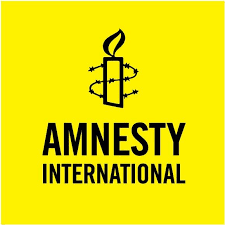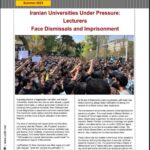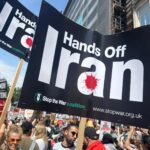
The shocking release of former Iranian prison official Hamid Nouri, sentenced to life imprisonment by a Swedish court in relation to his role in the 1988 prison massacres, following a prisoner exchange deal between Iran and Sweden on 15 June 2024, is a stunning blow to survivors and relatives of victims and contributes to the crisis of impunity in Iran, said Amnesty International.
The Swedish government’s decision not only emboldens the Iranian authorities to commit further crimes under international law, including hostage-taking, without fear of consequences, it also undermines the right to justice and reparation of survivors and victims’ families, and raises concerns about the commitment of Sweden’s government to its obligations under international law. Amnesty International is also gravely concerned that the premature release of Hamid Nouri has weakened the impact of the landmark rulings by Swedish courts under the principle universal jurisdiction, which had enabled the only prosecution to date, in Iran or abroad, of an Iranian official for the enforced disappearances and extrajudicial executions of thousands of prisoners carried out over three decades ago.
The circumstances of Hamid Nouri’s pardon by the Swedish government and his return to Iran confirm Amnesty International’s earlier concerns that the Iranian authorities have been holding Swedish nationals hostage to swap them for Hamid Nouri. Amnesty International shares the relief and joy of the families, friends and supporters of Swedish nationals Johan Floderus and Saeed Azizi, who returned home on 15 June after being subjected to a litany of human rights violations in Iran; and the organization has long advocated for the immediate release of all foreign and dual nationals held as hostages or otherwise arbitrary detained in Iran.
Grave risk of execution of Ahmadreza Djalali
A third Swedish national, medical doctor Ahmadreza Djalali, who also holds Iranian nationality, remains arbitrarily detained in Iran since April 2016, and is under sentence of death. Amid an ongoing and alarming execution spree in Iran, he remains at grave risk of his death sentence being implemented. Swedish authorities must urgently take all action necessary to secure his immediate release and return home to his family in Sweden, and act swiftly to protect Ahmadreza Djalali’s rights, including right to life.
Ahmadreza Djalali was sentenced to death in October 2017 on “corruption on earth” (efsad-e fel-arz), following a grossly unfair trial before Branch 15 of the Revolutionary Court in Tehran marred by reliance on torture-tainted “confessions.” On 9 December 2018, his lawyers learned that the Iran’s Supreme Court had upheld Ahmadreza Djalali’s death sentence without granting them an opportunity to file their defence submissions. The Supreme Court has rejected multiple requests he made for a judicial review. Ahmadreza Djalali’s death sentence is final and may be carried out at any moment.
Amnesty International also reiterates its calls on Swedish authorities to criminally investigate all Iranian officials suspected of criminal responsibility for the crimes under international law and human rights violations committed against Ahmadreza Djalali, including torture, on the basis of the principles of universal jurisdiction and passive personality jurisdiction.
Entrenching crisis of impunity in Iran
A crisis of systemic impunity for crimes under international law and other serious human rights violations has long prevailed in Iran. As a result, not a single state official has been criminally investigated in line with international standards, let alone tried and punished in Iran, for the extrajudicial executions and enforced disappearances of several thousand political dissidents during the 1988 prison massacres. For more than three decades, relatives and survivors have struggled for truth and justice. In July 2022, the decision of the Stockholm’s District Court to convict Hamid Nouri for crimes related to Iran’s 1988 prison massacres and sentence him to life in prison, and the confirmation of the judgment by the Court of Appeal Svea Hovrätt in December of 2023, was the first time an Iranian official was held to account for these crimes. Relatives, survivors and all those seeking truth and justice for the ongoing enforced disappearances and extrajudicial executions of the thousands of prisoners in 1988 are horrified at the message the prisoner swap sends to the Iranian authorities that their crimes once again go unpunished.
Amidst a complete absence of prospects for accountability at the domestic level, Amnesty International will remain resolute in its efforts to secure justice and reparation for victims’ families and survivors. The organization reiterates its call on all states to exercise universal jurisdiction to investigate and prosecute all former and current officials in Iran against whom there is evidence of involvement in crimes against humanity and other crimes under international law.
Emboldening hostage-taking
Amnesty International is also deeply concerned that the prisoner swap further emboldens Iranian authorities to continue to commit hostage-taking and other crimes under international law. To mitigate these risks, Swedish authorities must urgently conduct investigations into whether the deprivation of liberty of Johan Floderus and Saeed Azizi, amounted to the crime of hostage-taking and promote accountability through both public statements and the investigation and prosecution of suspected perpetrators. Amnesty International also urges the Swedish authorities to criminally investigate and issue arrest warrants for officials and others against whom there is sufficient admissible evidence of responsibility for crimes under international law against Johan Floderus and Saeed Azizi, on the basis of the principle of universal jurisdiction and passive personality jurisdiction.
Amnesty International previously documented how Iranian authorities subjected Johan Floderus, arbitrarily arrested in April 2022, to enforced disappearance and prolonged solitary confinement, in violation of the prohibition against torture and other ill-treatment; and pointed to mounting evidence indicating that the Iranian authorities were holding him hostage to compel Sweden to hand over Hamid Nouri. Between December 2023 and January 2024, Iranian authorities tried Johan Floderus before a Revolutionary Court for “corruption on earth” (efsad-e fil arz), a capital offence, and accused him of “espionage”, which he and his family repeatedly denied.
Background
The Iranian authorities have a long history of using arbitrarily detained dual and foreign nationals as leverage, as highlighted by the UN Special Rapporteur on the situation of human rights in Iran and the UN Working Group on Arbitrary Detention. In light of ongoing concerns regarding this unlawful practice, Amnesty International urges all states whose nationals are or have been detained at any point in Iran to promptly examine whether the deprivation of liberty amounts to the offense of hostage-taking and, if so, take all appropriate measures as provided by the International Convention against the Taking of Hostages.
The International Convention Against the Taking of Hostages defines the crime of hostage-taking as the seizure or detention of any person accompanied with threats to cause them harm including by killing, injuring or continuing to detain them in order to compel a third party, such as a state, to do or abstain from doing any act as an explicit or implicit condition for the release of the hostage. Under the Convention, any individual who participates as an accomplice of anyone committing or attempting to commit an act of hostage-taking may also have individual criminal liability for the offence of hostage-taking. The Convention does not restrict hostage-taking to acts committed by non-state actors, meaning state officials may also carry out detentions that amount to the crime of hostage-taking. Iran and Sweden are parties to the Convention in 2006 and are bound by its provisions.
Moreover, there is no requirement under international law for the conditions attached to the release of a detainee to have been explicitly uttered for the act of detention to amount to the crime of hostage-taking. Circumstances of a case including conduct by those detaining an individual that demonstrate an implicit demand placed on a third party to do or refrain from doing something may suffice to establish intent and to qualify the deprivation of liberty as an act of hostage-taking.













 Posted in
Posted in 











